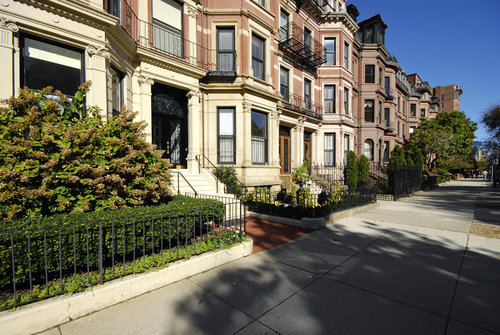The Walsh administration will announce new steps to combat the affordability crisis
Mayor Martin J. Walsh is set to announce new solutions from the Housing Innovation Lab on lowering housing and construction costs for middle-income consumers, as part of the “Housing a Changing City: Boston 2030” plan.
Many pilot programs are being launched over the next three months to help deal with Boston’s affordability crisis, including: a policy that reduces the cost to build for higher density buildings; allowing compact living units to be constructed on city-owned land; and fostering the creation of a homebuying portal.
“Solving the middle income housing challenge is among the biggest challenges we face today,” Walsh said. “The Housing Innovation Lab is bringing a new way of thinking about these issues to the City, and I’m appreciative of the time and energy that they have put into this work. Being able to test new approaches to this issue before solidifying them in policy is a unique approach, and one that we will continue to use to solve new challenges as well.”
Aggressive Action Needed To Save Affordability
Affordability has been a reoccurring problem in the city, with last year’s Greater Boston Housing Report Card 2015 highlighting many issues with no easy solutions. Thanks to rising development and land costs, it has become extremely difficult to build affordably, which is part of the reason why new construction has been focused in the high-end luxury sector.
Between 2004 and 2008, the total development cost per square foot for urban housing projects averaged at $242, or $387,000 for a 1,600 square feet unit. By 2011 to 2015, that price had increased to $274, or more than $438,000. The monthly rent for that property would have to be $3,215 to break even. Worse yet, very few Boston families could afford to pay that rent without being cost burdened. Over half of middle-class renters in Boston are cost-burdened, or spend more than 30 percent of their total income on housing alone, leaving many in Boston’s middle class in a tight position.
This is not the first time the Walsh administration has attempted to address Boston’s affordability struggle. Earlier this year, Walsh announced incentives for landlords to charge below market rents in the form of a tax break or credit, as well as pledging $5 million to nonprofits that assist landlords in providing affordable prices.
The government isn’t the only entity taking steps to solve the affordability crisis. Boston’s construction trade unions have agreed to lower their wage rates on specific projects in order to help lower rent, according to Construction Dive. Union apartment construction teams will have members who are paid approximately a third less than their standard wage in return for the owner agreeing to have a 100 percent union-staffed project.

